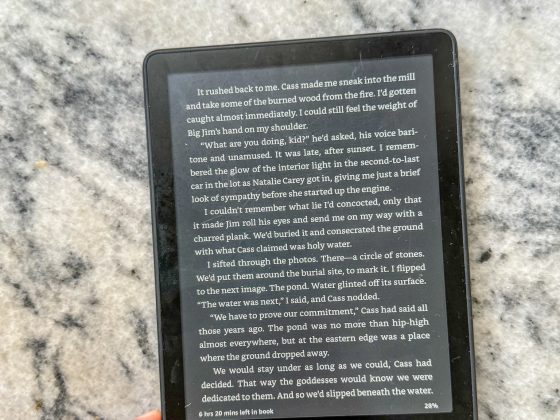While you may think that joy is just a state of mind that doesn’t really have any impact on your physical body, you are mistaken. In “The Book of Joy: Lasting Happiness in a Changing World,” the Dalai Lama and Desmond Tutu come together to share what they know to be true about human happiness. The connection between our emotional and physical health becomes quite obvious as the authors detail the potential benefits between empathy, compassion, generosity, and self-compassion. Other research indicates that happiness can reduce stress and even dull pain. They make the direct connection that your happiness is related to reduced inflammatory processes, increased happiness hormones released in your brain, and other benefits that are making us rethink just how linked our minds and bodies are.
I scratch your back, you scratch mine
The old backscratching adage is really about “reciprocal altruism” in which taking care of each other is directly linked to survival. The authors write, “Evolutionary science has come to see cooperation and its core emotions of empathy, compassion, and generosity, as fundamental to our species’ survival.” Never has this proven more true than in the pandemic, when we ultimately had to learn to work together to implement and practice mask and social distancing protocols that impacted more than just ourselves. Altruism (meaning being more interested in the well-being of others than yourself) pays off in dividends both for our own health and for the continuation of humankind.
The “helper’s high”
Authors use evidence that we really want to help each other, and not just for our own personal mental and health benefits, citing that babies as early as six months old choose helping toys over ones that hinder others. This innate drive isn’t just because we are good people; it’s based on the “helper’s high.” We get the same release of Oxytocin, the feel-good hormone in the brain, when we help others, and the benefits don’t just stop there. It’s also been associated with decreased inflammation in the cardiovascular system. This proves, as the authors state, “Compassion literally makes our heart healthy and happy.” We also crave that high by passing it on again and again, and the reach of our compassionate actions extends up to 2-3 degrees of separation, meaning friends of friends will reap the benefits as well through our “pay it forward” mentalities. Think helping is just to be nice? A University of Buffalo study found that stress was linked to a higher chance of dying, but not among those who helped others.
So why don’t we do it more often?
We might be spending much of our time trying to be empathetic versus actually compassionate, the authors claim. The Dalai Lama uses the example that if we see someone getting crushed by a rock, empathy would mean getting under the rock and feeling bad for them, while compassion is getting the rock off of them! Not only are we worried about looking vulnerable by extending this type of compassion, but we are also concerned with getting too dependent on it ourselves. The authors push us to strive for compassion, the “more empowered state” of wanting what’s best for the other person, rather than just living in the feeling with them.
Finally, to achieve true health as well as to develop joy, we have to engage in self-compassion, recognizing the frailties and vulnerabilities of our own human condition.










